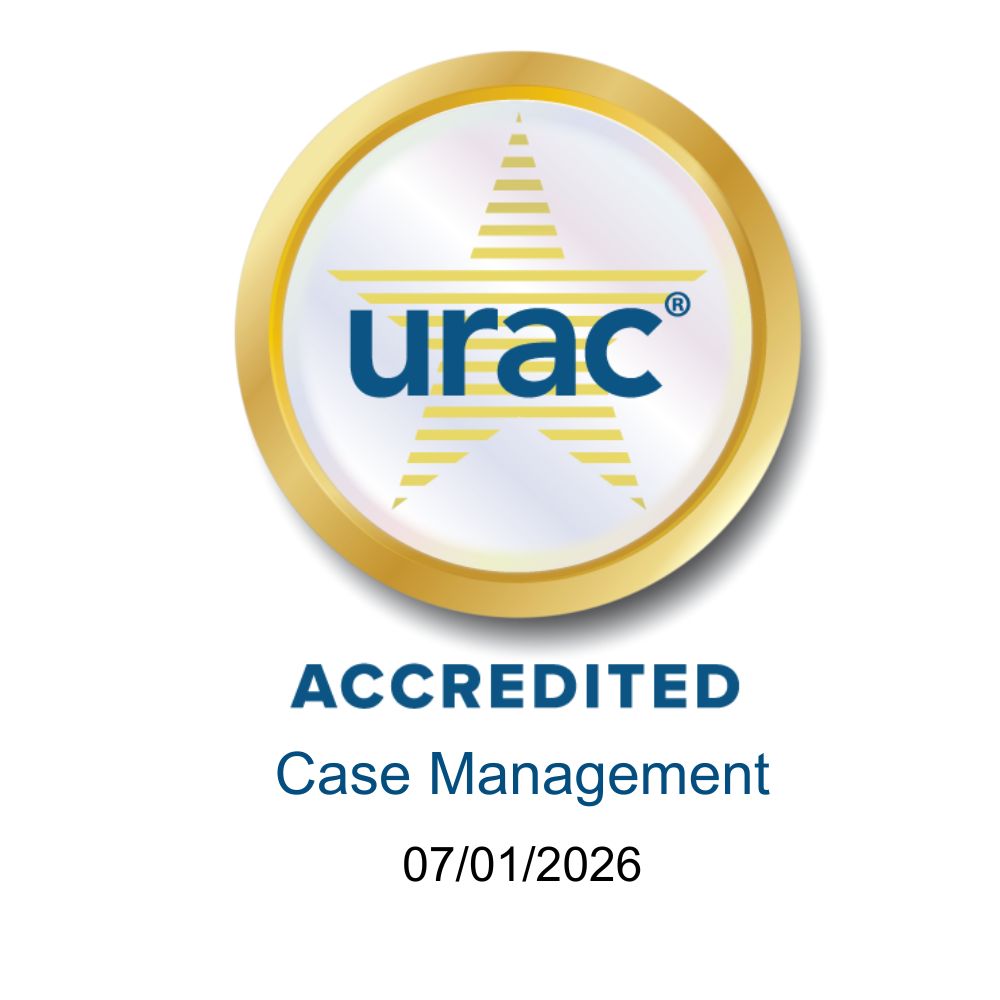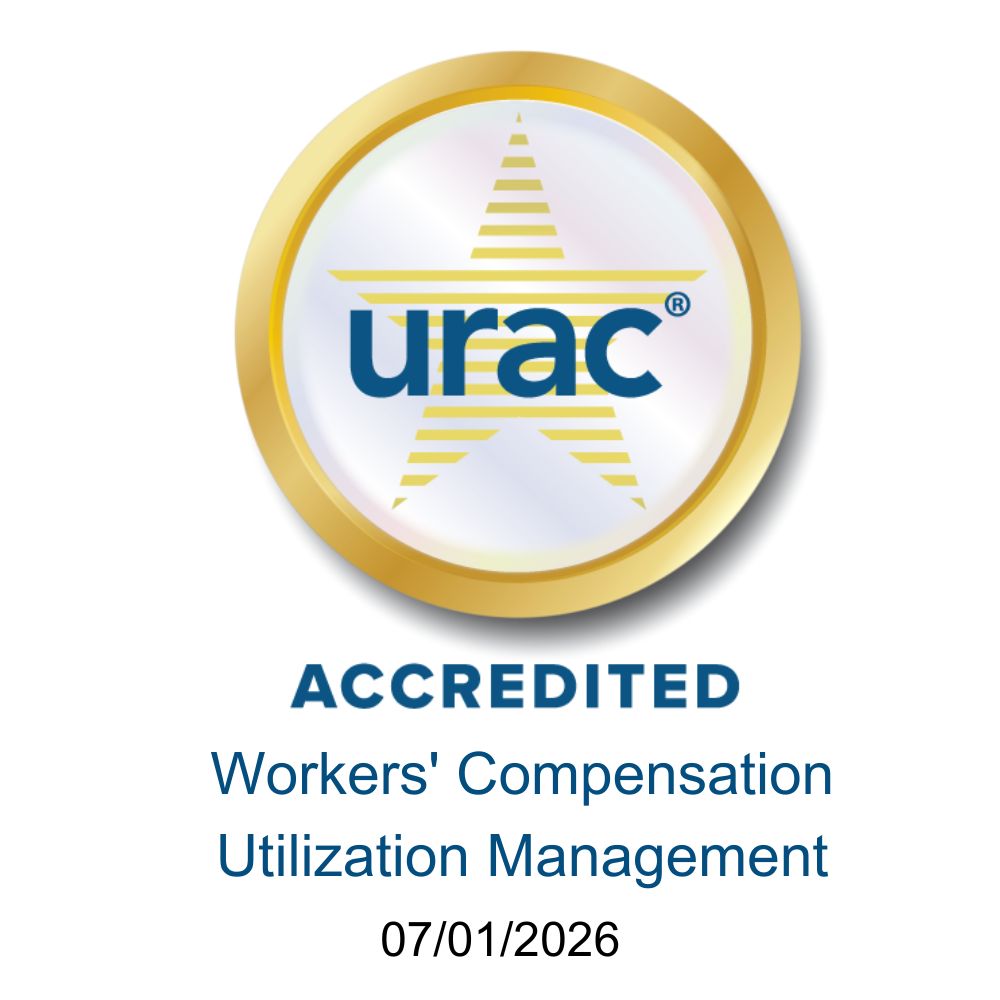
/EK%20Health%20-%20Patient%20Advocacy%20wide%20header.jpg)
Merriam-Webster defines advocacy as “the act or process of supporting a cause or proposal”. In the case of patient advocacy in workers’ compensation claims, the cause or proposal we support is the health and wellbeing of an injured worker. Far beyond a name on a file, EK Health sees the faces and feelings involved as we support each injured worker’s recovery.
Though case management most likely comes to mind when you consider the term in workers’ compensation, patient advocacy is a driving force in all managed care solutions. Medical bill review insulates the injured worker from any involvement or responsibility in dealing with confusing billing practices. The timeliness and clinical excellence of utilization review expedites the delivery of appropriate medical care that is proven to be most effective in optimizing his or her recovery. The accuracy and expediency of Medicare Set-Asides ensures financial needs are adequately covered for the injured worker’s long-term medical care. help ensure access to the highest quality medical providers. And, of course, medical case management is focused almost entirely on providing the injured worker the clinical support and professional resources needed to reach optimal improvement as quickly and safely as possible.
Even in the best of times, the workers’ compensation experience is generally characterized as bureaucratic, tedious, confusing, and frustrating. The experience can quickly spiral when you add the emotional pressure of a global pandemic, quarantine fatigue, and the grief of lost friends and family members. Consider these statistics from Mental Health America, based on national survey data1:
- From January to September 2020, 315,220 people took Mental Health America’s anxiety screening, a 93 percent increase over the 2019 total number of anxiety screens. 534,784 people took their depression screen, a 62 percent increase over the 2019 total number of depression screens.
- In September 2020, the rate of moderate to severe anxiety peaked, with over 8 in 10 people who took an anxiety screen scoring with moderate to severe symptoms. Over 8 in 10 people who took a depression screen have scored with symptoms of moderate to severe depression consistently since the beginning of the pandemic in March 2020.
According to the CDC’s Morbidity and Mortality Weekly Report dated June 24-30, 2020, 40% of U.S. adults reported struggling with mental health or substance abuse during late June 20202.
/EK%20Health%20-%20Patient%20Advocacy%20twitter%20graphic-2.jpg)
"In workers compensation cases a major goal is always to return the employee to as full a recovery as possible. However, the insidious issue of mental health, including the impact of previous adverse childhood experiences (ACEs), is a major factor in delaying full recovery. A few sensitive questions can diagnose this dynamic. Like any issue in medicine, acknowledgment is essential.”
- Dr. Doug Benner, Chief Medical Officer, EK Health Services, Inc.
Now more than ever, managed care companies who perform their role with excellence can shield the injured worker from those frustrations by stepping into the gap as an expert communicator and connector.
As our Owner and CEO, Eunhee Kim, stated, “I’ve learned that there’s an emotional aspect that gets in the way, but we have to find a way to communicate and bridge the gap. I see myself as the bridge to connect the minds of the people to the solutions they need. When you break the circular nature of emotional reactions, you can get to the root of the issue and resolve it. I see our role as a managed care company that way – we’re here to bridge the gap.”
In today’s turbulent times, patient advocacy has taken on a crucial role – nurturing the mental health of injured workers under our care. According to the National Alliance on Mental Illness (NAMI), “1 in 5 American adults experiences some form of mental illness in any given year. And across the population, 1 in every 20 adults is living with a serious mental health condition such as schizophrenia, bipolar disorder or long-term recurring major depression. Depression and anxiety disorders cost the global economy $1 trillion in lost productivity each year; and depression is a leading cause of disability worldwide.”
Support Strategies
The mind-body connection plays a key role in supporting the mental health of our injured workers. This is especially important when you consider3:
- People with depression have a 40% higher risk of developing cardiovascular and metabolic diseases than the general population. People with serious mental illness are nearly twice as likely to develop these conditions.
- 18.4% of U.S. adults with mental illness also experienced a substance use disorder in 2019 (9.5 million individuals).
What can you do to support your own mental health and those around you? NAMI suggests the following support strategies4:
- Be mindful of your news consumption.
- Stay connected to friends and family, even if it’s virtual.
- Practice reflective listening to help process and validate fears and stressors.
- Implement self-care priorities like sleep, physical exercise, and healthy diet.
- Maintain routines to help alleviate stress.
- Find healthy distractions to shift your focus from stressors.
- Help others.
Now more than ever, keen awareness of mental health is critical for all parties involved in patient care. Our teams are actively educating and supporting injured workers to help alleviate stress, empower optimal recovery, and protect the mental health of the most important person in the process – the injured worker.
"Our nurse case managers can help in several ways – in working with the claims professionals and providers – but more importantly, by being there to listen to our patients with the right dose of empathy as we guide them toward the most effective resources."
- Eunhee Kim, Owner and CEO, EK Health Services, Inc.
Sources
1 https://www.mhanational.org/issues/state-mental-health-america
2 https://www.cdc.gov/mmwr/volumes/69/wr/mm6932a1.htm?s_cid=mm6932a1_w
3 https://nami.org/mhstats
4 https://www.nami.org/Blogs/NAMI-Blog/March-2020/Coronavirus-Mental-Health-Coping-Strategies
Click Here to download a PDF copy of the article
RELATED CONTENT |
||




/R&I%20Article%20-%20Patient%20Advocacy%20in%20a%20Mental%20Health%20Crisis%20(Jan%202021)-1.jpg)
/R&I%20Article%20-%20Patient%20Advocacy%20in%20a%20Mental%20Health%20Crisis%20(Jan%202021)-2.jpg)
/R&I%20Article%20-%20Patient%20Advocacy%20in%20a%20Mental%20Health%20Crisis%20(Jan%202021)-3.jpg)
/R&I%20Article%20-%20Patient%20Advocacy%20in%20a%20Mental%20Health%20Crisis%20(Jan%202021)-4.jpg)